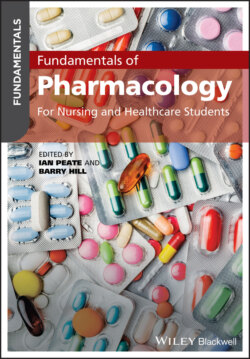Читать книгу Fundamentals of Pharmacology - Группа авторов - Страница 27
Medicines optimisation
ОглавлениеThe term medicines optimisation is generally used to encompass a more people‐centred approach to the use of medicine as part of a person's care (NICE, 2015). It is essential that patients get the best quality outcomes from medicines: medicines play an important role in maintaining health, preventing illness, managing chronic conditions and curing disease – all against a backdrop of significant economic, demographic and technological change. There is evidence to suggest that there is an urgent need to get the essentials of medicines use right. Medicines use is too often sub‐optimal and a step change is needed in the way that all healthcare professionals offer support to patients in order to get the best possible outcomes from their medicines (Royal Pharmaceutical Society, 2013).
Medicines optimisation is concerned with ensuring that the right patients get the right choice of medicine, at the right time. When healthcare providers focus on patients and their experiences, there is much potential to help patients improve their outcomes, take their medicines correctly, avoid taking unnecessary medicines, reduce wastage of medicines and improve medicines safety. Medicines optimisation can help to encourage patients to take ownership of their treatment. In order to ensure medicines optimisation reaches its full potential, this requires a multidisciplinary team working approach. Healthcare professionals work together to individualise care, monitor outcomes, review medicines and support patients when needed.
Medicines management is different to medicines optimisation in a number of ways; most importantly it focuses on outcomes and patients as opposed to process and systems. Focusing on improved outcomes can help to ensure that patients and the NHS get better value from their investment in medicines. Medicines optimisation considers how it is that patients use medicines over time. This can involve stopping some medicines as well as starting others and utilising opportunities that may arise for lifestyle changes and nonmedical therapies to reduce the need for medicines.
